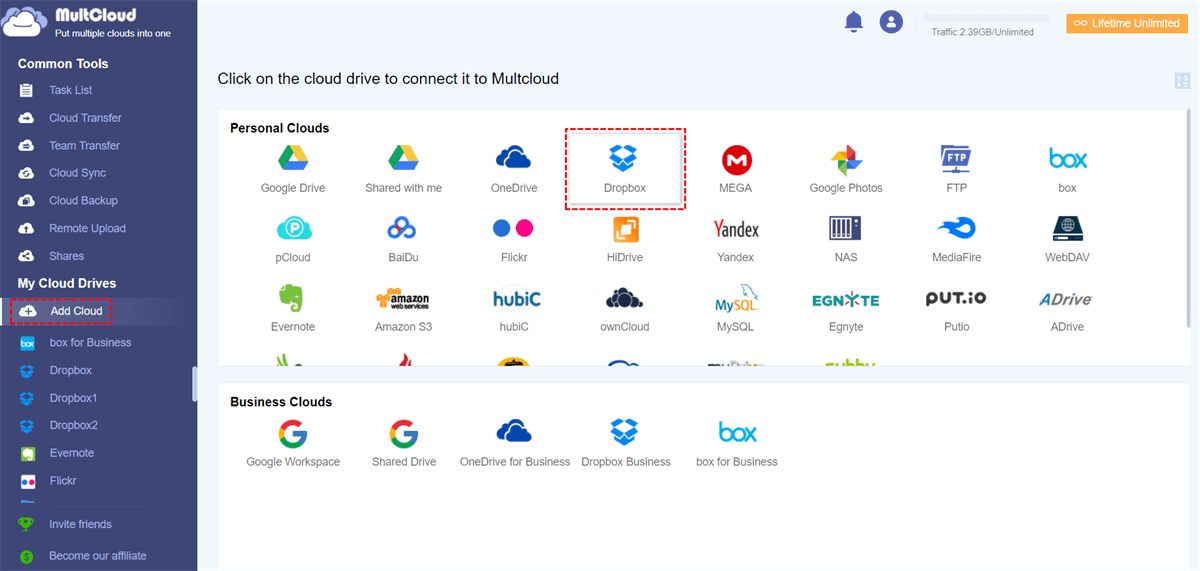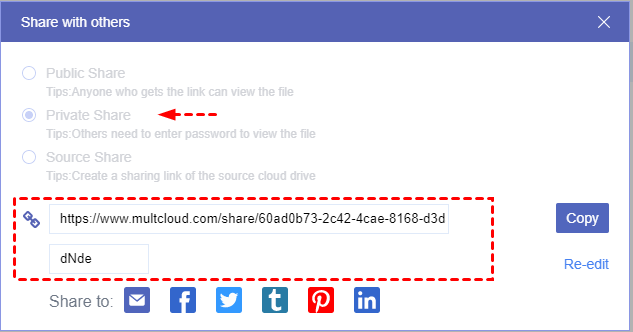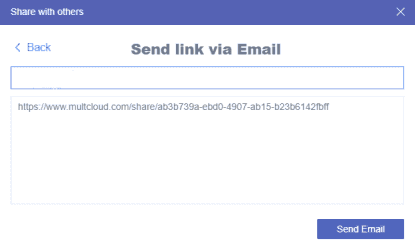Can I Email Large Video Files Successfully?
Have you ever tried to attach a large file like a photo and video to the email but suddenly receive a warning or error message? Some email servers may not be able to send messages with a file size larger than 25 MB or more as an attachment. Please be aware of these size limits before sending large video files via email.
- Gmail: Send large files through Gmail with a total size smaller than 25 MB.
- Outlook: Send large size video through email of Outlook within 20 MB in total.
- Yahoo Mail: Send a large video file by email of Yahoo smaller than 25 MB.
- iCloud Mail: Send iCloud messages that are up to 20 MB in size.
If you have a wonderful video and want to share it with others safely through email, while the video is larger than the email attachment limit, you will need some tips on how to email large video files without being stopped by the attachment limit. Luckily, this comprehensive guide will tell you in detail about how to send a large video by email in 5 free and tested ways. These easy ways are also great for you to send long videos on iPhone.
How to Send Large Video Files via Email Normally in 3 Ways
The common solution to send large and long videos via email while breaking through the email attachment limit is to, use cloud storage services such as Google Drive, OneDrive, Dropbox, pCloud, etc. to upload and email a large video file successfully. If you have an account of cloud storage services like these, you can follow the first 3 ways step-by-step.
Way 1. Email Large Video Files through Gmail and Google Drive
If you want to send a video file larger than 25 MB via Gmail, just upload files to Google Drive and send a link of the large video file to your recipients. The recipients will open the link and view or download the video in their browser. Here’s the detailed operation.
Step 1. In the Gmail interface, click “Compose” and choose the Google Drive icon at the bottom of the pop-up window.
Step 2. Select a video in the “My Drive” folder or move to the “Upload” folder and select a video from your local device to upload to Google Drive. Then click “Insert” below.
Step 3. Fill in the blanks of recipients, subject, and content of your email. Then click “Send”.
Step 4. Choose the access permission for your recipients and click “SEND” again.
Tip: By receiving permission from you, recipients can not only view the video but can also save the video to their Google Drive or download video from Google Drive. If the recipients have Google accounts, they can conveniently make comments about your shared video through the link.
Way 2. Send Large Videos via Email by Outlook and OneDrive
If you are sending a large video file through outlook, you can upload the video file to OneDrive and then send a link of the shared video from OneDrive to other Outlook users. Because Outlook and OneDrive are very closely linked by Microsoft accounts.
Step 1. Log in to the OneDrive website and click “Upload” above.
Step 2. Navigate the large video on your local device and click “Open” in the pop-up window.
Step 3. Select the uploaded large video and click “Share” above.
Step 4. Enter the Outlook accounts of your recipients in the pop-up window and leave a message if you want.
Step 5. Click “Send” and the receivers of Outlook users can directly view your shared video.
Tip: You can also click “Copy link” and paste the sharing link in the Outlook email to manually send large videos via Outlook.
Way 3. Send Large Video Files through Email by Yahoo
Similar to the above 2 ways of how to send a large video through email, you can simply email a large video via Yahoo by inserting a sharing link of the large video before sending. The link should be generated by a cloud storage service that stores the large video.
How to Send Large Video Files via Email Quickly in 2 Ways
Apart from using the 3 basic methods illustrated above to email large and long video files without the limitations of an email attachment, here are another 2 simple ways that can help you successfully email long video files to others quickly and securely for free.
One is to compress your large video files before sending them through email, and the other is to email long and large video files by an excellent file sharing service called MultCloud.
Way 1. How to Send a Large Video through Email by Compressing
To compress a large video before sending it through email, one of the most common ways is to compress the large video into a zip file. The size of the video will be reduced significantly and the quality will not be affected by the compression. What’s more, this solution is available to both Mac and PC users.
For PC users: Right-click the large video stored in your local computer and click Send to > Compressed (zipped) folder.
For Mac users: Click “Compress” in the right-click menu of the large video.
Way 2. How to Send Large Video Files through Email Securely by MultCloud
As a professional web-based cloud file manager and online file sharing service, MultCloud can help you send and share large video files through email with flexible sharing modes. Based on the clouds you add to MultCloud, you can securely send large video files from every cloud through email, Facebook, Twitter, and other ways easily in a single interface.
- Create sub-accounts of MultCloud to collaborate and send large files with the team in a shared cloud folder across clouds after subscribing.
- Send large files from the cloud to anyone you want by the public, private (password), or source mode all according to your needs.
- Create file requests from all your clouds with easy management for free.
Step 1. Create a MultCloud account on the official website.
Step 2. Add a cloud to MultCloud by clicking the corresponding icon. Here we choose Dropbox as an example.
Tip: MultCloud supports 30+ major clouds and allows you to add all of them for completely free.
Step 3. Tick a video in your Dropbox account and click “Share” in the feature bar.
Step 4. Choose a sharing mode in the pop-up window and click “Create Share”. Then you will get a sharing link and a random password if you choose the “Private Share” mode.
Step 5. Click the email icon and enter the email addresses of your recipients in the blank. Then click “Send Email” and your recipients will immediately receive the email with the sharing link of your shared large video.
With the sharing link and password, your recipient can view and download the large video easily from the link. And he can create his MultCloud account to directly save the video to his cloud conveniently.
Tip: To better protect your shared videos, you can try the Private Share mode so that recipients need to open the sharing link with the password set by you.
In the End
Now the question of how to send large video files via email may not become a problem for you after learning 5 useful methods. You can follow the instructions carefully to send large files like videos and photos via email without any errors occurring. If you also think that using MultCloud may be the best way to send a large video via email, you can try MultCloud to send everything you want to others while saving your time and energy.
| ?Send via Cloud Drive | Send videos through the associated cloud drives of the email service provider. |
| ?Compress Emails Before Sending | Compress videos into smaller sizes before sending them through email. |
| ☁Send by MultCloud | Use MultCloud to email the sharing link of your large videos with password protection. |
| ?Which is Better? | MultCloud can overcome the size limitation and offer you password protection. |
Besides, except those helpful sharing functions, MultCloud can also do great in cloud-to-cloud transfer, sync, backup, and team-to-team transfer seamlessly in a single interface through the Cloud Transfer, Cloud Sync, Cloud Backup, and Team Transfer features.
MultCloud Supports Clouds
-
Google Drive
-
Google Workspace
-
OneDrive
-
OneDrive for Business
-
SharePoint
-
Dropbox
-
Dropbox Business
-
MEGA
-
Google Photos
-
iCloud Photos
-
FTP
-
box
-
box for Business
-
pCloud
-
Baidu
-
Flickr
-
HiDrive
-
Yandex
-
NAS
-
WebDAV
-
MediaFire
-
iCloud Drive
-
WEB.DE
-
Evernote
-
Amazon S3
-
Wasabi
-
ownCloud
-
MySQL
-
Egnyte
-
Putio
-
ADrive
-
SugarSync
-
Backblaze
-
CloudMe
-
MyDrive
-
Cubby

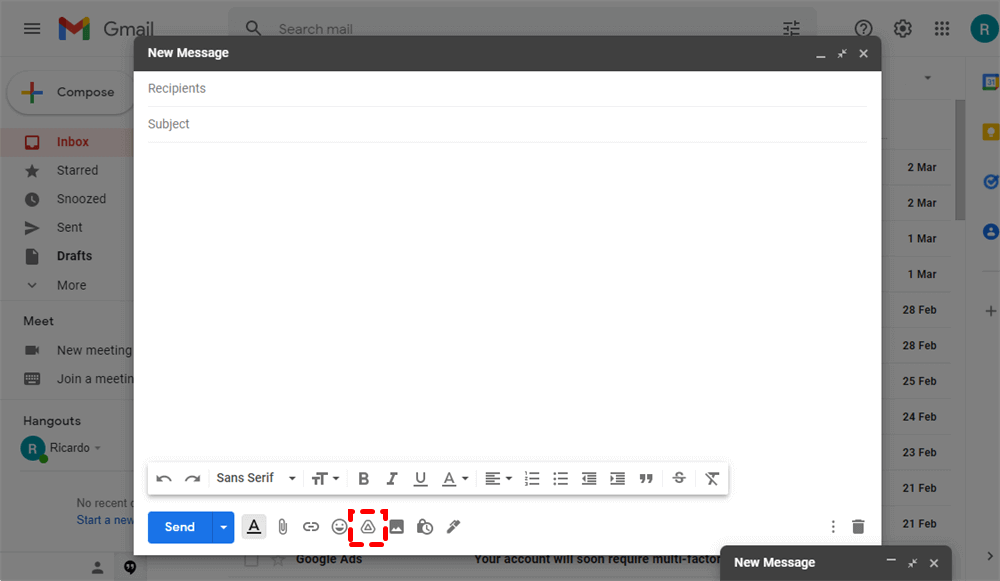


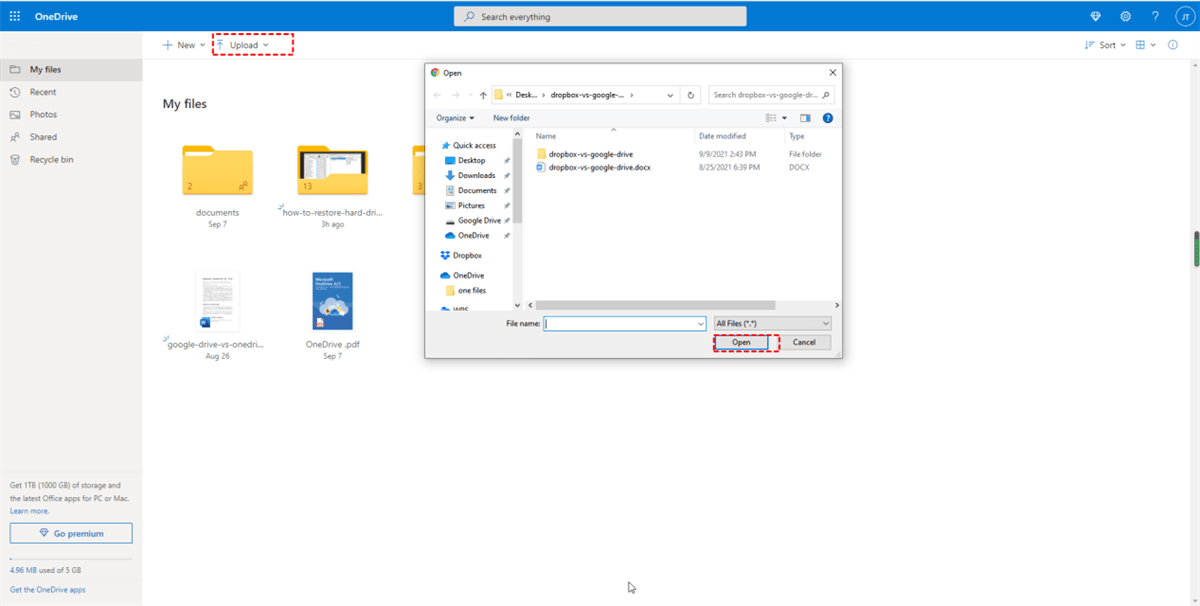
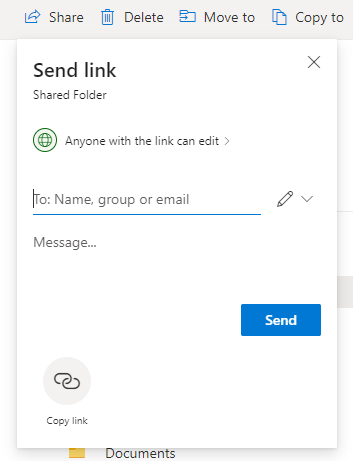


.png)

